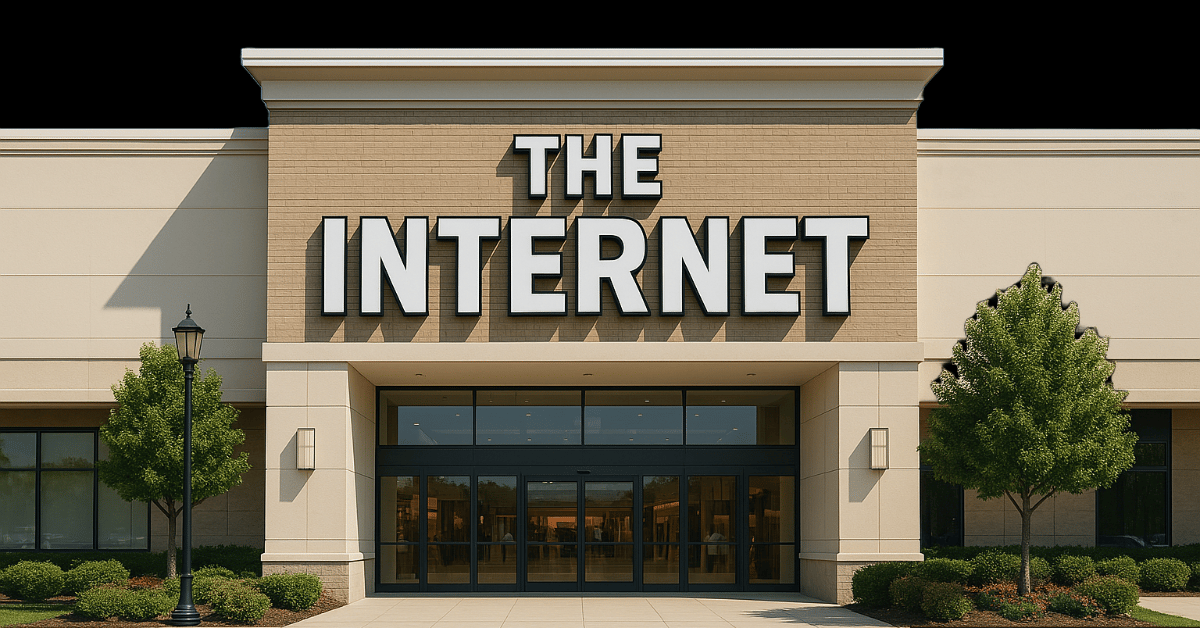- Your ATTN Please
- Posts
- Why owning your audience is more important than ever
Why owning your audience is more important than ever

The internet is not a public space. It’s a mall.
And we’re all loitering under the watchful eye of security. So you best act accordingly. There’s a popular fantasy we’ve been collectively clinging to since the early 2000s: that the internet is a public square. A town hall, if you will. A digital commons where people gather, protest, dance, create, and argue in the open.
I’m gonna hold y’alls hands while I say this, but if the internet were ever a free-for-all (the MySpace, Bebo and Tumblr era maybe), that version died somewhere between Cambridge Analytica and TikTok's algorithm-induced identity crisis. Today’s internet is not a town square, dear friend. It’s a mall. Privately owned, corporately governed, and just a little hostile to anyone not shopping or selling.
Think about it. Every platform you “hang out” on is owned by someone (duh.)
These platforms are not civic spaces. They're commercial environments masquerading as community hubs. They feel public, but they’re governed like shopping centres—complete with rules about what you can and can’t say, what you can wear, and how long you can loiter before you get shadowbanned for being “off-brand.” You’re welcome 😊 until you’re not ☹
Try setting up a protest in your local Westfield and see how long you last before security shows up. I can guarantee you it won’t be too long. The same thing happens online—just more subtly. Deplatforming. Algorithmic throttling. “Community guidelines” so vague they could mean anything. Even verified creators with massive followings have learned this the hard way. One wrong word, one flag, one off-message post, and poof—your reach seemingly vanishes overnight. This isn’t a bug in the system. It is the system. And the brands understand this better than most of us do.
Because they play the landlords, not the tenants.
While users are busy trying to be authentic online, brands are out here buying up billboards inside the mall. They’re making deals with the management (read: platforms), sponsoring events (read: TikTok trends), and embedding themselves deep within the architecture. They don’t just want to exist in the mall. They want naming rights to the food court, parking lot, you name it.
That’s why a single brand tweet can reach millions while your hot take on housing policy gets zero engagement. It's not that your voice doesn't matter. It's that you’re not paying rent, baby. Brands are. In ad dollars, in partnership deals, in backroom handshake agreements. They understand that this isn’t neutral ground; it’s premium real estate.
Every movement happens on corporate-owned turf.
Remember when protests were happening on TikTok? Or when mutual aid groups were organising through Instagram Stories? These grassroots movements found footing online, but always with the risk that their posts could be removed, accounts suspended, or hashtags banned.
So, what happens when every conversation, every cultural moment, every trend is funnelled through a privately-owned algorithmic filter? What happens when our discourse is dictated by engagement metrics and brand safety guidelines? You get an internet that’s less about community and all about commerce.
That’s just the reality of it.
If we accept the mall metaphor, we also need to get smarter about how we use these spaces.
Creators: Diversify your platforms. Build an email list. Own your audience somewhere you can’t get kicked out of.
Marketers: Understand the rules of the mall, but then create content that adds value without feeling like a walking billboard.
Everyone else: Be aware that what you see online isn’t “the world.” It’s the food court. And not every voice is given the same platform to speak.
The internet was probably never truly free. But as it becomes more mall-like by the day, the least we can do is recognise where we are. Maybe then, we start asking bigger questions—like why the most “viral” voices always seem brand-safe. Or why real conversation gets buried under dance trends and sponsored hauls. Maybe we stop handing over our culture to platforms that rent it back to us in 30-second clips.
It’s time to stop playing tenant and start thinking like architects. Because if we don’t build new public spaces online—real ones, owned by us—then we’ll always be shopping, and never truly speaking.
-Sophie, Writer
Not going viral yet?
We get it. Creating content that does numbers is harder than it looks. But doing those big numbers is the fastest way to grow your brand. So if you’re tired of throwing sh*t at the wall and seeing what sticks, you’re in luck. Because making our clients go viral is kinda what we do every single day.
Reply